Understanding confidence and self-esteem
If we have high self-esteem, we feel good about ourselves. And if we feel confident, we feel like there are things we're good at. But sometimes, our confidence gets knocked, or we don't like ourselves very much.
We can all feel like this at times, but when we feel like this for a long time, it can become a problem.
Whatever affects your confidence or self-esteem, it's important to remember that you have the right to feel good about yourself.
Contents
Jump to page information on:
Seeing other people choose to spend time with me helped me to realise that there are lots of things I like about myself, and to worry less about what they thought about me.
What is self-esteem?
Self-esteem is how we think and feel about ourselves. Self-esteem can affect how much we:
- Like and value ourselves as people
- Believe in ourselves and the things we can do
- Stand up for ourselves when under pressure
- Are willing to try new or difficult things
- Move on from mistakes without blaming ourselves unfairly
- Believe we matter and are good enough
- Believe we deserve happiness
If we have high self-esteem, the way we think and feel about ourselves is likely to be positive.
But if we have low self-esteem, we may find that the way we think and feel about ourselves is more negative, and we may feel less able to stand up for ourselves.
Example: effects of self-esteem
When Matt's self-esteem was low, he didn't feel like he was clever and he worried about the way he looked. He stopped trying in maths lessons, as he thought he'd never be any good at maths. He also stopped wearing clothes he liked, because he thought no-one would be interested in him.
Matt then found a couple of new friends who dressed how he liked to. When he told them he was struggling with maths, they offered to help him with any problems he was stuck on.
Now Matt dresses how he wants, and feels good about it. He also finds it easier to keep trying in maths lessons, even when he's finding things difficult.
I've got an amazing group of friends now and I actually want to go to school, like I don't like having sick days anymore – Isla, 13
What is confidence?
Confidence is about believing in ourselves, our abilities and ideas. This could be:
- Knowing a suggestion you have in class is a good one
- Feeling like you can learn a new song your band wants to perform
- Knowing you can ask someone out
Confidence is also about understanding and accepting ourselves for who we are. This could be:
- Feeling proud of your sexuality or how you look
- Being okay with not being great at sports
- Not wanting to change yourself to fit in with others
I think accepting who you are and being proud of anything which makes you different is very important, there is only one version of yourself.
Example: effects of confidence
Aneesa used to have little confidence in herself. Her mum and her friends all said she had a gift for writing, but she felt embarrassed by it. She used to hide her stories and hope her English teacher wouldn't read her work out loud.
Now Aneesa is building up her confidence and it's making a difference. She sticks motivational messages and pictures on her walls. She also keeps a list of nice comments anyone makes about her writing so she can read them when she feels unsure of herself.
Although Aneesa still doesn't want to read her stories out loud in class, she feels confident enough to submit a story to a national competition. She's really proud of how much her confidence has grown.
What can affect our confidence and self-esteem?
Negative experiences can lower our confidence and self-esteem, like going through a breakup or being teased about our appearance.
Positive experiences can boost our confidence and self-esteem, like doing well on a test, getting a compliment on how we look, or doing something nice for a friend or neighbour.
What affects confidence and self-esteem can be different for different people. These experiences might affect our confidence or self-esteem positively or negatively:
- Results at school or college
- Social media or adverts
- The level of support we receive from people we trust
- Our body image and how we feel about our appearance
- Our achievements or skills
Something that can really affect our self-esteem and confidence is the people we surround ourselves with, especially our friends.
But other experiences may only negatively affect our confidence and self-esteem, like:
- Physical or mental health problems that affect our ability to do certain things, or to be understood by others
- Peer pressure to fit in
- Pressure to achieve in exams, sport or other hobbies
- Being bullied or abused
- Experiencing stigma or discrimination
- Moving away from where we feel safe, like away from family or friends
- Family problems
- Relationship problems
You may be affected by other experiences that we haven't listed on this page. Or you might have had low confidence or self-esteem for a long time, which can make it hard to understand why you're feeling this way.
Changes to your confidence and self-esteem
You may feel like your confidence or self-esteem changes from day to day, or that there's been a more noticeable change over time.
If your confidence or self-esteem have been low for a long period of time, you should talk to your doctor.
A doctor will be able to see if your low confidence or self-esteem is linked to a mental health problem, like depression or anxiety. They will also be able to talk you through some different support options, like counselling, to see what's right for you.
For more information, see our page on finding support.
You can do anything, and you will always be capable of doing everything you want to do once you've really, really pushed through it – Olu, 16
How can I build my confidence and self-esteem?
Building your confidence and self-esteem can take time and practice. But there are lots of things you can do to improve the way you feel about yourself and your abilities.
It might feel like a big step to make changes. Start by trying a couple of new things each week, until you find what works for you:
- Be kind to yourself
- Look after yourself
- Focus on the positives
- Spend time with people
- Learn to assert yourself
- Do things you enjoy
- Act confident when you don't feel it
- Try something new
Where can I go for help and support?
If you're worried about how you're feeling, or your low confidence or self-esteem is affecting your relationships and everyday life, it's okay to ask for help.
You could:
- Read our information on understanding your feelings, or for advice on what help is available, see our page on finding support.
- Try talking to a trusted adult you know, or contact Childline or The Mix for a confidential chat with a counsellor.
- If you've been feeling like this for a while, you could talk to your doctor.
For a list of other organisations who might be able to help, go to our page of useful contacts.
Discrimination
Discrimination is when someone treats you differently or unfairly because of:
- Your age
- Your disability
- Your gender
- Your gender identity
- Your sexuality
- Your relationship status
- Your religion or beliefs
- Your race, skin colour or where you were born
- Being pregnant or having a child
In the UK, a law called the Equality Act protects you from discrimination.
The Equality Act says you have a disability if you have a physical or mental health problem that has a substantial, negative, and long-term effect on your day-to-day life.
Visit our full treatment and support glossaryThis information was published in August 2020. We will revise it in 2023.
The quotes on this page are from young people we spoke to while making this information. They've given us their consent to use their quotes in our information. The words, experiences and opinions in the quotes are not related to the young people shown in any of the photographs we use.
References are available on request. If you would like to reproduce any of this information, see our page on permissions and licensing.













